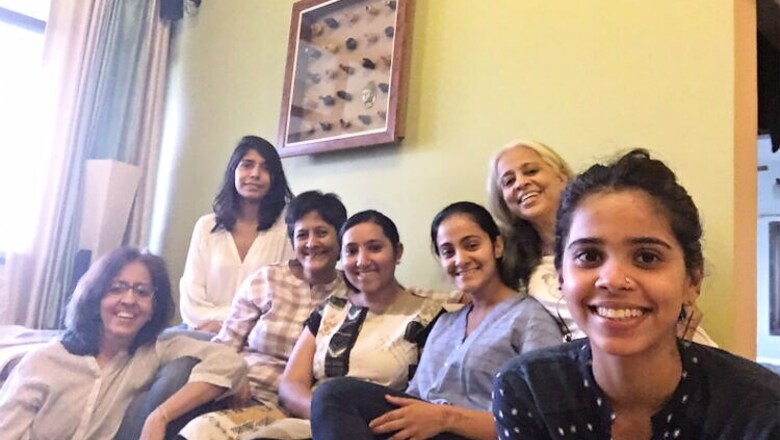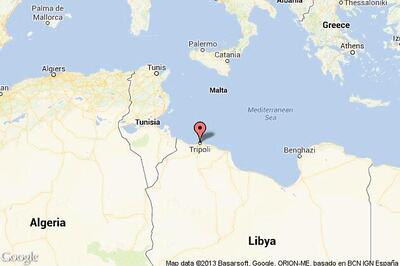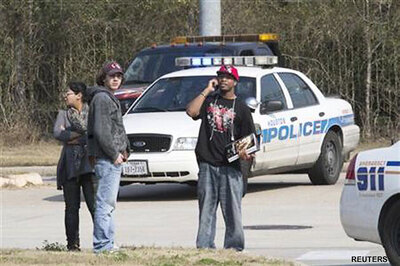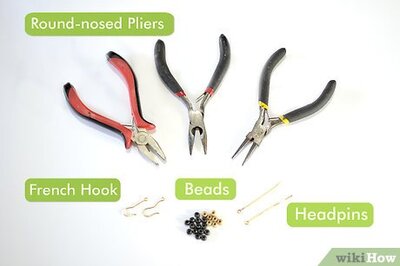
views
Last year I wrote my experience of female genital mutilation as a child (commonly referred to as khatna within the Bohra community). The experience of just penning down in detail the suppressed memory of a dark and sordid ritual was cathartic.
At the time of writing, however, I was filled with despondency. The trauma I had felt forty years ago still existed. Many young Bohra women I had spoken to told me they had their daughters circumcised/cut because the elders in the community had pressured them to do so. Many had done it unquestioningly. The Australia case, where two young girls were circumcised, proved that even in countries where it is banned, the practice is still perpetuated but under clandestine, secretive circumstances.
In the midst of this utter gloom something beautiful happened. Speak out on FGM was born. This forum was a spontaneous coming together of a group of Dawoodi Bohra women from all walks of life, of all ages, 18 to 80. We connected because we all shared in some ways the experience of FGM. We were housewives, psychologists, counsellors, filmmakers, journalists, entrepreneurs, stock brokers, scientists, writers and even students. We were mothers, grandmothers, daughters and sisters. The group started off by attracting members from far and wide facilitated by technology. From Mumbai to Nagpur, Pune, Udaipur to Toronto, Australia, US and UK, women began joining in our platform.
At the Speak Out on FGM forum, we began our conversations, discussions and debates. The need and urge to share our stories, our experiences, our views and opinions, our anger at this practice, our helplessness and our hopes, was just so strong. It has been a heart warming process to make these soulful connections and exchange these stories.
In December 2015 Speak out on FGM group started of a petition on change.org. The petition appealed to a larger public to sign on our demand for an end to FGM in India and appeal to the government to make a law that will ban this practice here. For the first time in the history of this community, 17 women put their names and signatures on the petition. Most of the women on the petition have themselves been subjected to this practice, some have been lucky enough to escape the knife. We have been receiving a lot of support from within the community and outside. To date we have got almost 30,000 signatures.
On daily basis, we hear positive anecdotes and updates from group members that boosts our spirits. For instance, Zehra Patwa posted a message the other day saying, "I just talked someone out of doing khatna on their daughter and made someone who was absolutely going to do it on their daughter to at least reconsider". A few days back Insia Dariwala was ecstatic as she had convinced a Bohra woman to not do khatna for her daughter. We all are elated when anyone of us manages to convince another woman to not subject her daughter to this. Nishreen from our group has resolved not to subject her two young daughters, aged 4 and 6, to khatna. While Tasleem rues the day she took her daughter for this years ago, she regrets it and holds herself responsible for her daughters' khatna. The group then acts as a platform for her to voice and reflect upon this regret. Notwithstanding the past, she is now a solid supporter of Speak Out on FGM and passionately campaigns against FGM.
These small stories and small victories soar our spirits and goad us to march along.
We all know we have an uphill task ahead of us. The control over the minds and bodies of women seems so complete in the community. Or this instance of a PhD pharmacist and her mother, who is an anaesthesiologist, both accompanying her little girl for the procedure.
So is the story of young Farida, which is heart rending. A practising counsellor today, she gets into a cold sweat at the mention of FGM. Her memory is so vivid yet so painful. She gasps in pain when she remembers the redness of the bathroom each time she went after the procedure was done on her. And even now, decades later, her body reacts physically to just the recollection of that day.
Issues of individual, family, law and religion are talked about openly and freely on our forum. On a daily basis we debate many questions. What is the ‘official' or real reason our community performs and believes in FGM? Was anyone ever offered an explanation? What are kind of memories we have of that day? Did it affect us physically, emotionally, psychologically, sexually? At a more profound level, we ponder over what is the best way we can combat this pernicious practice?
FGM is a practice steeped in patriarchy. The basic idea behind it being that sexuality of a girl/woman has to be controlled. It perpetuates the idea that women's bodies have to be altered, their sexuality has to be curbed, she should be denied the right to love, the right to enjoy sex or even have an orgasm. Without a care for the physical and psychological damage it does to the girl/woman.
Uncircumcised girls are seen as immoral and circumcision is seen as necessary to prevent infidelity of women.
As women we have been taught that anything related to the female reproductive system or sexual desire is taboo, and deemed a women's issue only. The biggest factor is the shame a daughter would bring on the family if she did not toe the line. There is a huge amount of shame associated with even talking about khatna. This shame prevents many women from ever talking about this practice or even openly aligning themselves with our platform.
Then there is fear – the fear of repercussions from the clergy, from the family, from society. This silences most of the women.
We seek to inform women about the harmful consequences of this practice, we want them to be able to freely talk about the practice without any sense of shame or fear. The road ahead of us is long and arduous. But we are not alone anymore.
A quote from Terry Pratchett's 'Small Gods', shared by my fellow traveller, sums it beautifully: "Fear is strange soil. Mainly it grows obedience like corn, which grows in rows and makes weeding easy. But sometimes it grows the potatoes of defiance, which flourish underground."
And today, we're not so underground anymore.
(Some of the names above have been changed to protect the identities of the women. Views are personal, not that of CNN-IBN/IBNLIVE)
(This article has been written by Masooma Ranalvi, a survivor of Female Genital Mutilation, on how a group of women from Bohra community have found courage to speak on FGM. They call themselves as the group ‘Speak Out on FGM' and the attached picture has a few members of the same group. It is an awe-inspiring story because almost all of them are coming out publicly to speak about their personal experiences, for the first time in their lives)


















Comments
0 comment